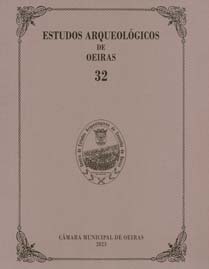Revisitando a proveniência do cobre usado em Leceia
DOI: https://doi.org/10.5281/zenodo.7920135
Palavras-chave:
Pb isotope ratios, copper provenance, Lisbon peninsula, Chalcolithic, Los Pedroches batholit, Betic CordillerasResumo
The work presents a revaluation of a pioneer research about the copper provenance in the Chalcolithic settlement of Leceia (Oeiras, Portugal) considering theoretical developments in the application of lead isotope analyses, in addition to the recent publication of the large IBERLID database including copper ores from Iberian Peninsula. Therefore, the lead isotope ratios of 14 copper artefacts and copper prills from Leceia were compared with the signatures of those copper ores and the similarity between metal and probable source signatures was assessed with the calculation of Euclidean Distances (using 206Pb/ 204Pb, 207Pb/204Pb and 208Pb/204Pb). Considering the present knowledge, the results confirmed that copper deposits in the South Portuguese Zone and the Ossa‑Morena Zone can in fact be the source of some of the copper used in that Chalcolithic settlement. However, new evidence also indicates an important origin of copper, not in mines from southern Portugal, but perhaps in deposits located farther away in Los Pedroches batholith at the Central Iberian Zone.
Downloads
Publicado
Como Citar
Edição
Secção
Licença
Os artigos publicados são da exclusiva responsabilidade dos Autores.
É expressamente proibida a reprodução de quaisquer imagens sobre as quais
existam direitos de autor sem o prévio consentimento dos signatários dos artigos
respectivos.




